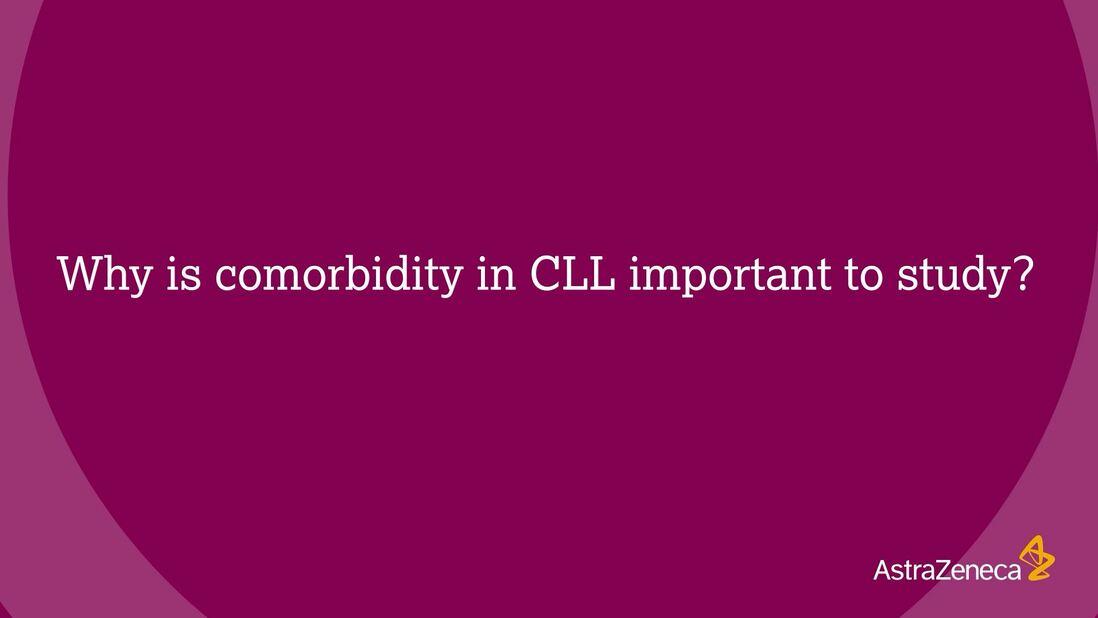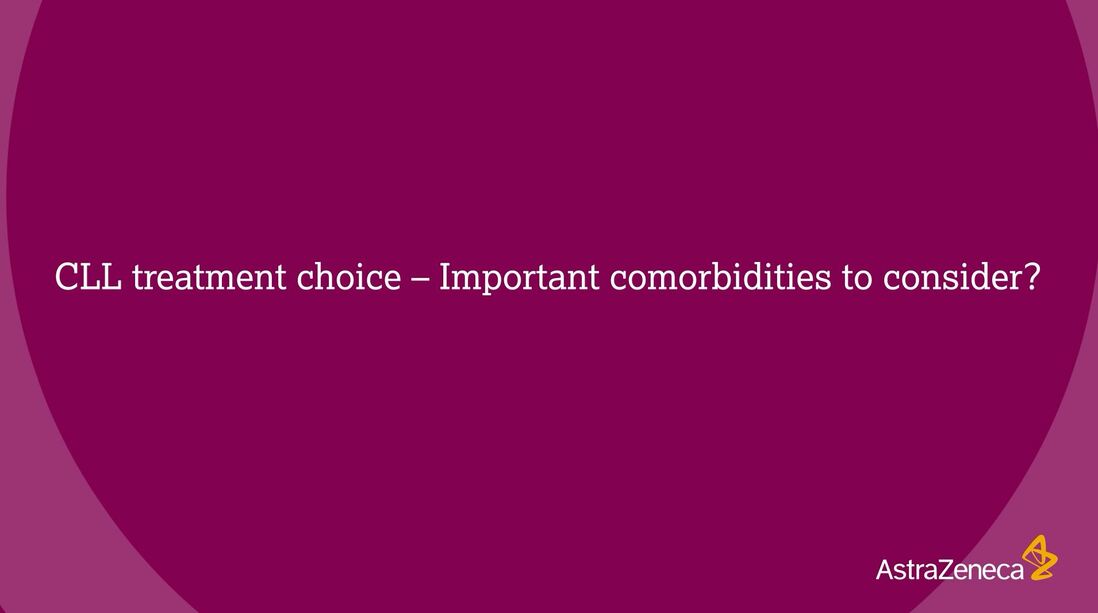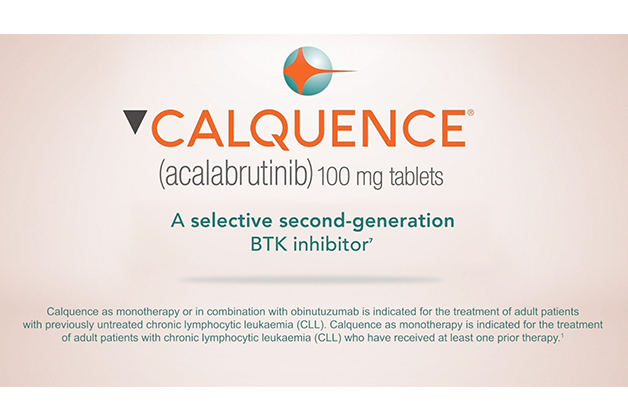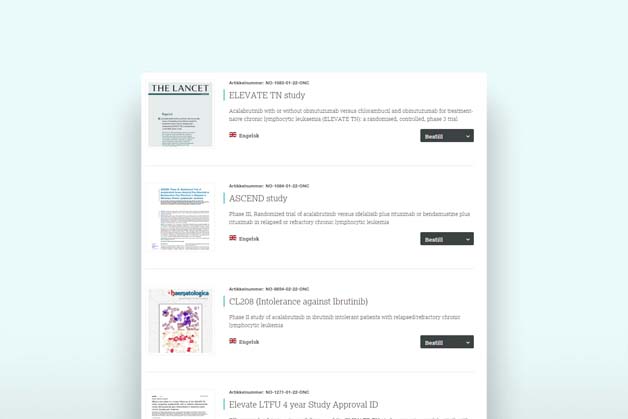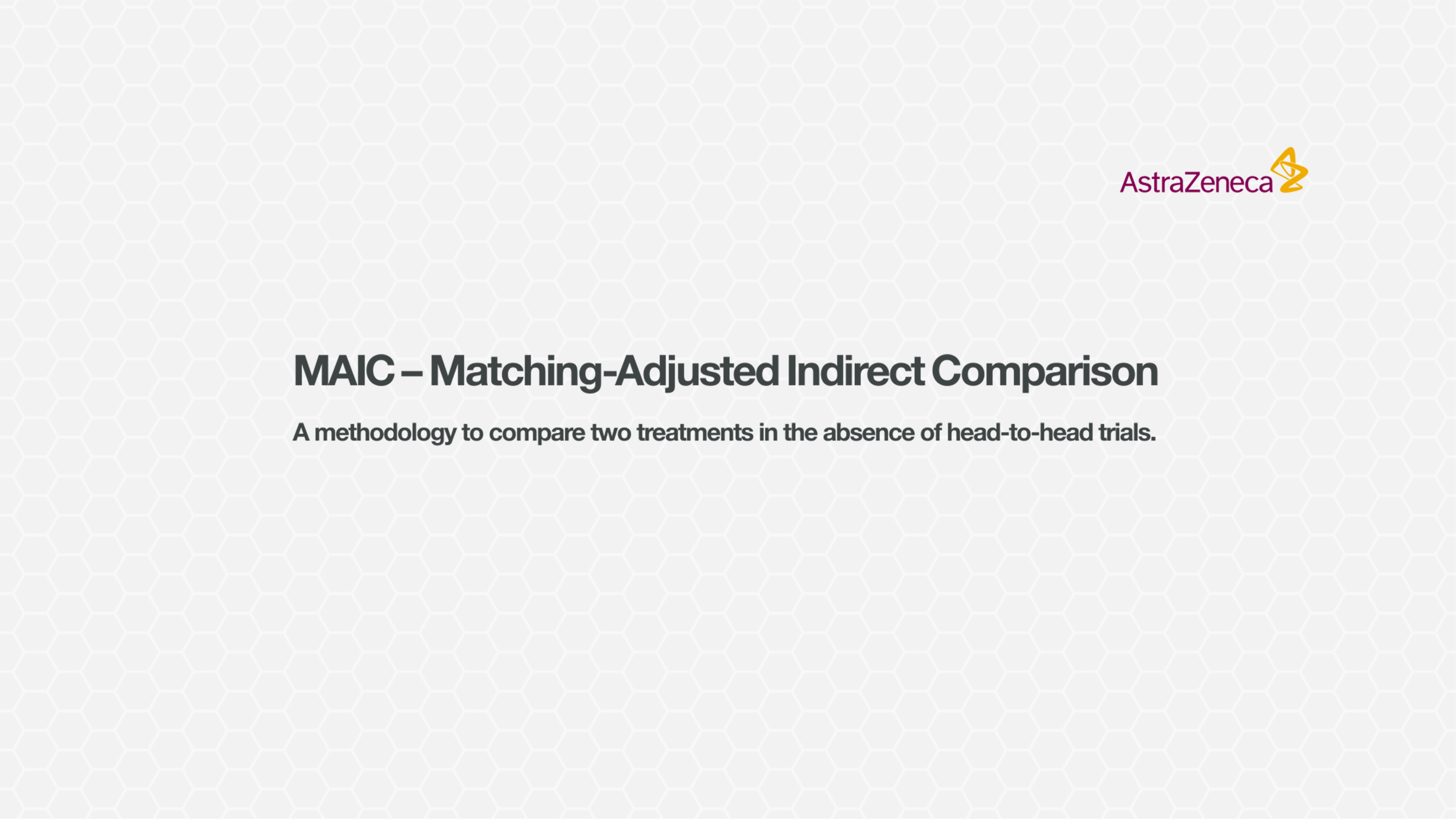▼ Viktig informasjon om Calquence (akalabrutinib)
Indikasjoner: Som monoterapi eller i kombinasjon med obinutuzumab, til behandling av voksne med tidligere ubehandlet kronisk lymfatisk leukemi (KLL). Som monoterapi til behandling av voksne med KLL som har fått minst 1 tidligere behandling.
Dosering: Voksne: Anbefalt dose er 100 mg 2 ganger daglig. Behandling bør fortsette inntil sykdomsprogresjon eller uakseptabel toksisitet.
Forsiktighetsregler: Alvorlige blødninger, inkl. blødning i CNS og gastrointestinal blødning er sett. Pasienter som bruker antitrombotiske midler kan ha økt risiko for blødning og forsiktighet skal utvises ved bruk. Warfarin eller andre vitamin K-antagonister skal ikke gis samtidig med akalabrutinib. Atrieflimmer/flutter forekom hos pasienter med hematologiske maligniteter både ved monoterapi og i kombinasjon med obinutuzumab. Overvåk for symptomer på atrieflimmer og atrieflutter og foreta EKG om nødvendig. Ved høy risiko for tromboembolisk sykdom, skal nøye kontrollert behandling med antikoagulanter og andre behandlingsalternativer vurderes.
Interaksjoner: Samtidig bruk av sterke CYP3A-hemmere skal unngås; kan gi økt eksponering for akalabrutinib og dermed økt risiko for toksisitet. Dersom slike hemmere skal brukes i en kort periode (f.eks. antiinfektiva i opptil 7 dager), skal behandlingen avbrytes. Pasienten skal overvåkes nøye hvis en moderat CYP3A-hemmer brukes. Samtidig bruk av en CYP3A-induktor og sterke CYP3A4-induktorer skal unngås; vil kunne gi redusert eksponering og risiko for manglende effekt. Akalabrutinib kan øke eksponeringen for samtidig administrerte BCRP-substrater (f.eks. metotreksat) ved å hemme BCRP i tarm. Metabolitten ACP-5862 kan øke eksponeringen for samtidig administrerte MATE1-substrater (f.eks. metformin).
Bivirkninger: Monoterapi: Vanligste bivirkninger(≥ 20 %): Infeksjon, hodepine, diaré, blåmerker, muskel- og skjelettsmerter, kvalme, fatigue, hoste og utslett. De vanligste (≥ 5 %) bivirkningene av grad ≥ 3 var infeksjon, leukopeni, nøytropeni og anemi
Kombinasjonsbehandling: Vanligste bivirkninger (≥ 20 %): Infeksjon, muskel- og skjelettsmerter, diare, hodepine, leukopeni, nøytropeni, hoste, fatigue, artralgi, kvalme, svimmelhet og forstoppelse. De vanligste (≥ 5%) bivirkningene av grad ≥ 3 som ble rapportert var leukopeni, nøytropeni, infeksjon, trombocytopeni og anemi.
Pakninger og priser: 60 stk. (blister) kr 69.842,20. Reseptgruppe C.
H-resept. Calquence er innført som monoterapi eller i kombinasjon med et anti CD20-antistoff, til behandling av voksne pasienter med tidligere ubehandlet kronisk lymfatisk leukemi (KLL) med 17p-delesjon/TP53-mutasjon og/eller 11q-delesjon, eller som monoterapi hos KLL pasienter som har fått minst én tidligere behandling (Beslutningsforum for Nye Metoder, sak 153-20221, og sak 167-20221, www.nyemetoder.no). Calquence inngår i Helesforetakenes anbefalinger for onkologiske legemidler og rekvirering skal gjøres i tråd med disse: https://www.sykehusinnkjop.no/avtaler-legemidler/onkologi/.
For mer info om Calquence, se www.felleskatalogen.no eller godkjent SPC.
ID: NO-13297-11-24-ONC



